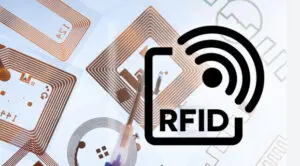Radio Frequency Identification (RFID) technology, as a wireless communication technology, has been widely utilized over the past few decades. However, with the continuous progress and innovation in technology, RFID is also evolving. This article envisions the future applications of RFID technology, explores its potential in various fields, and analyzes the trends for future development.
Introduction: RFID technology is a method of automatic identification that utilizes radio signals. By associating tags with objects, it enables tracking, identification, and management of these objects. In the past, RFID technology has mainly been applied in areas such as logistics, supply chain management, and inventory tracking. However, with the rapid development of technologies such as the Internet of Things (IoT), big data, and artificial intelligence, RFID technology will find even broader applications.

future rfid 1
I. Intelligent Logistics and Supply Chain Management In the future, RFID technology will play a more significant role in logistics and supply chain management. By applying RFID tags to packaging boxes, goods, and transportation vehicles, real-time tracking and management of logistics information can be achieved. This will enhance logistics efficiency, reduce costs, and provide more accurate supply chain data analysis for businesses.
II. Smart Retail and Smart Cities The application of RFID technology in the retail industry and city management will also be expanded in the future. Future malls and supermarkets can utilize RFID tags to identify and manage merchandise, enabling automated inventory management and checkout processes. In terms of smart cities, RFID technology can be employed in intelligent traffic management, smart parking systems, and urban security monitoring, enhancing efficiency and convenience in city management.

future rfid 3
III. Smart Healthcare and Health Monitoring RFID technology also holds vast potential in the healthcare and wellness sectors. By implanting RFID tags in patient wristbands or bodies, accurate patient identification and automatic updates of medical records can be achieved. Additionally, RFID technology can be utilized in drug management, medical equipment tracking, and health monitoring, providing people with safer and more efficient healthcare services.
IV. Internet of Things (IoT) and Industrial Applications RFID technology will merge with IoT technology to serve intelligent factories, smart agriculture, and smart energy, among other industrial applications. By incorporating RFID tags into machinery, tools, and equipment, real-time tracking, monitoring, and optimization of industrial processes can be achieved, leading to increased productivity and cost-effectiveness.
Conclusion: As technology continues to advance, the future of RFID technology looks promising. With its applications ranging from intelligent logistics and retail to healthcare and industrial sectors, RFID technology will undoubtedly contribute to enhanced efficiency, accuracy, and convenience in various aspects of our lives.
